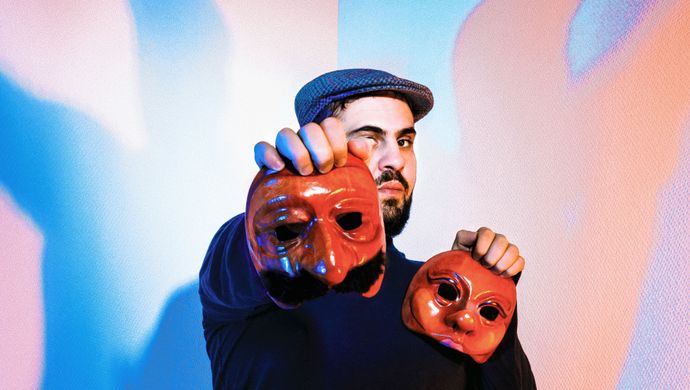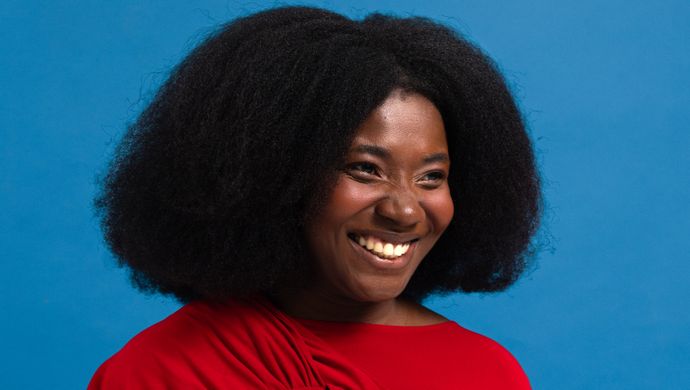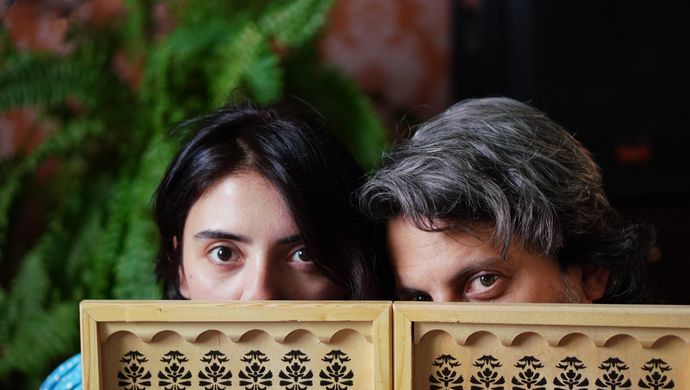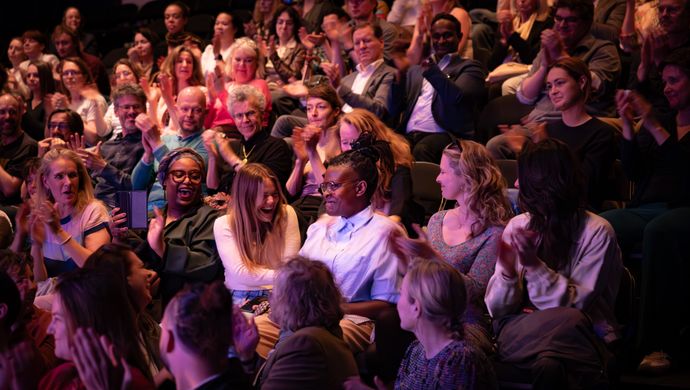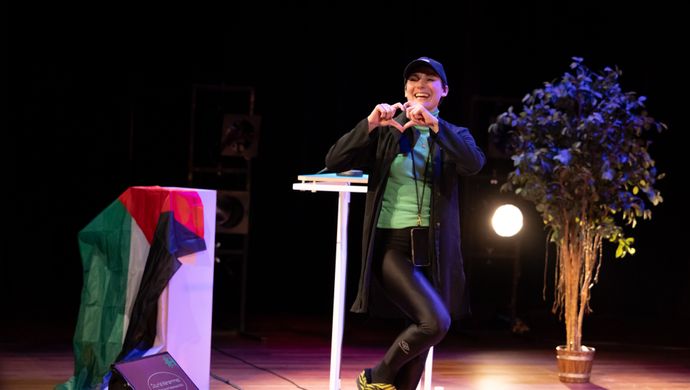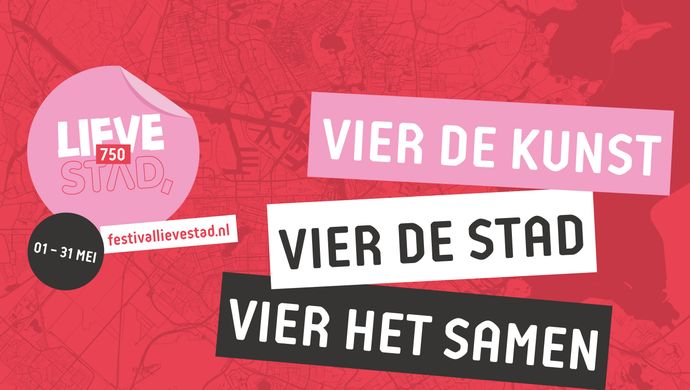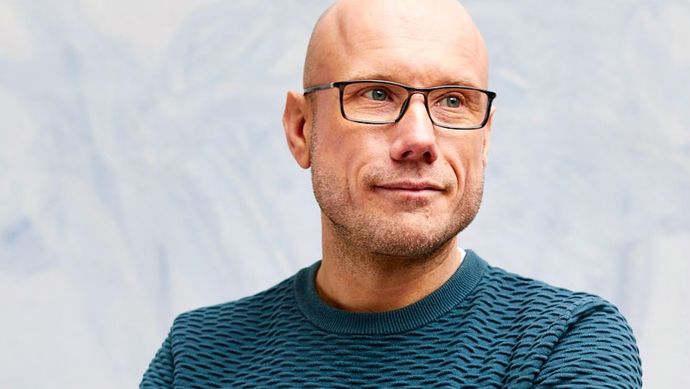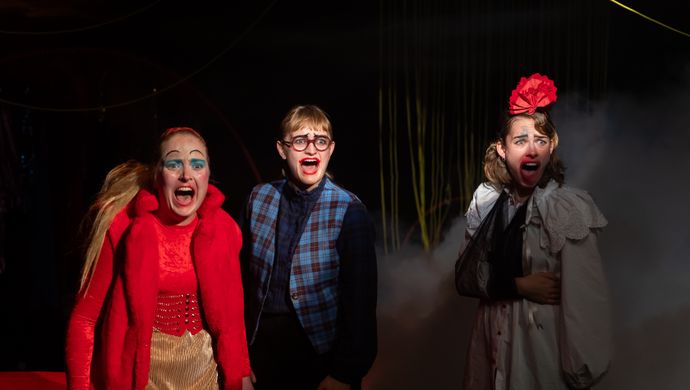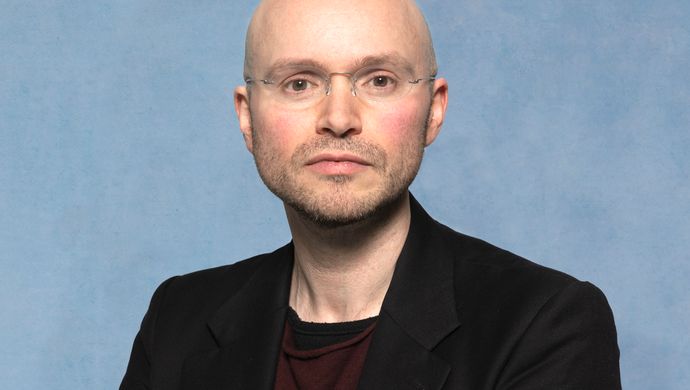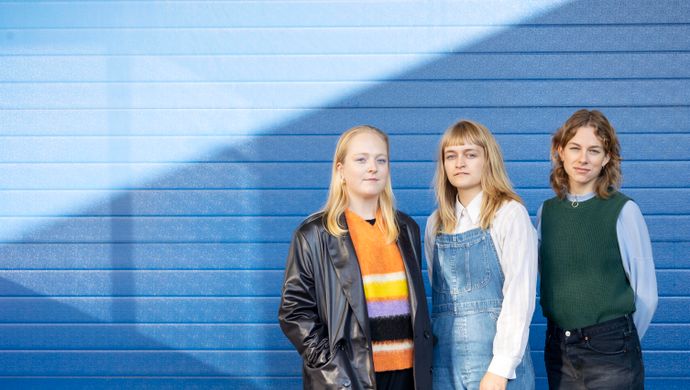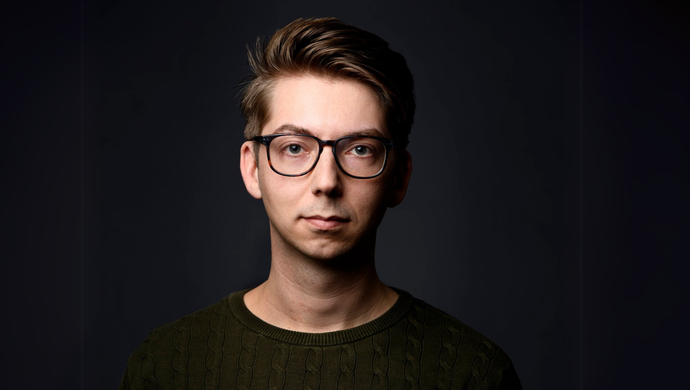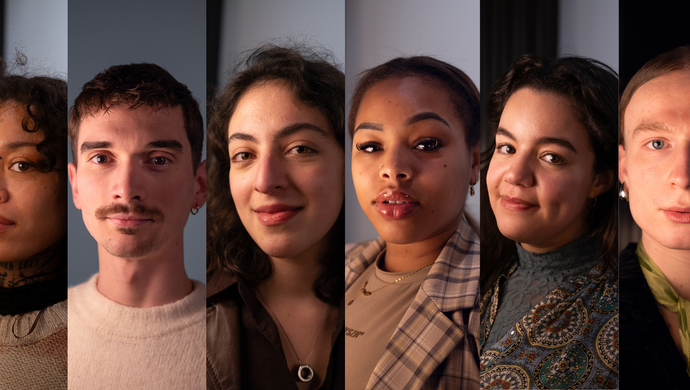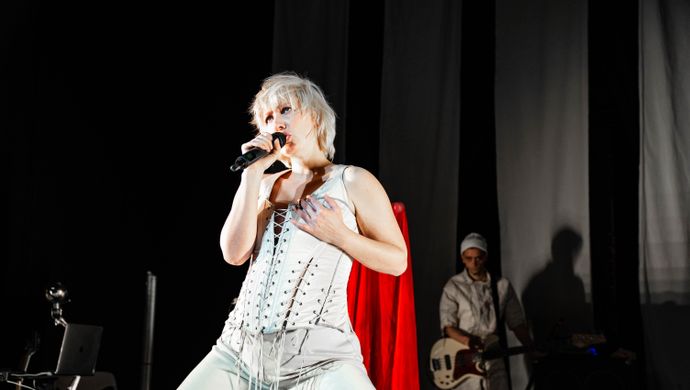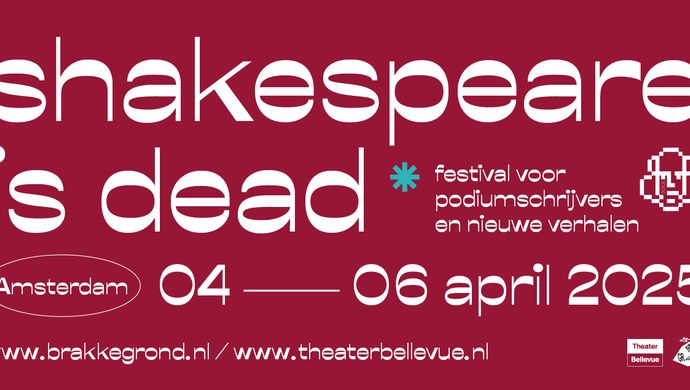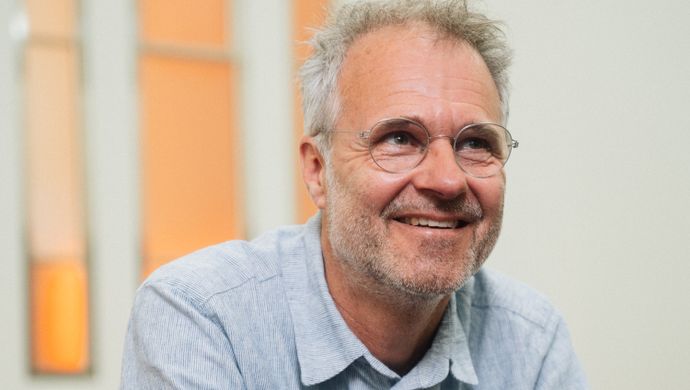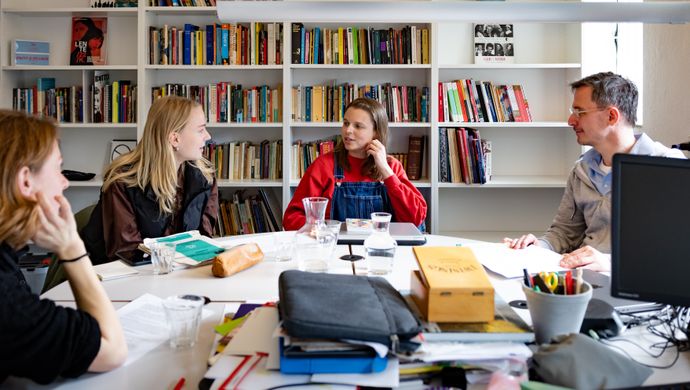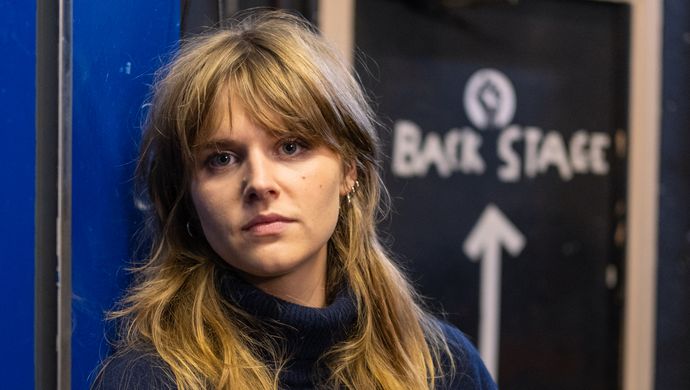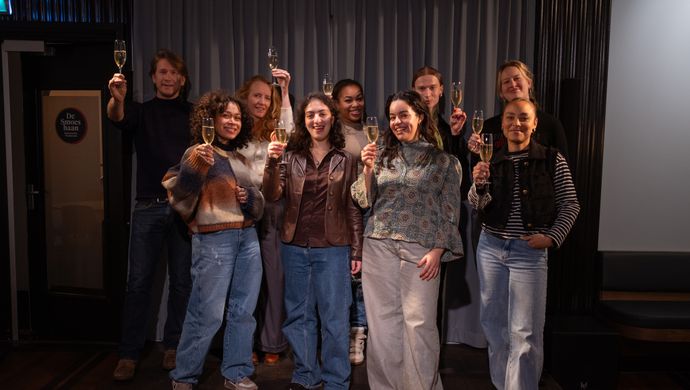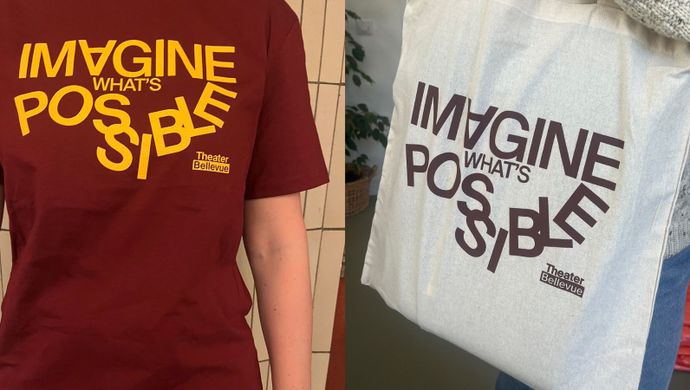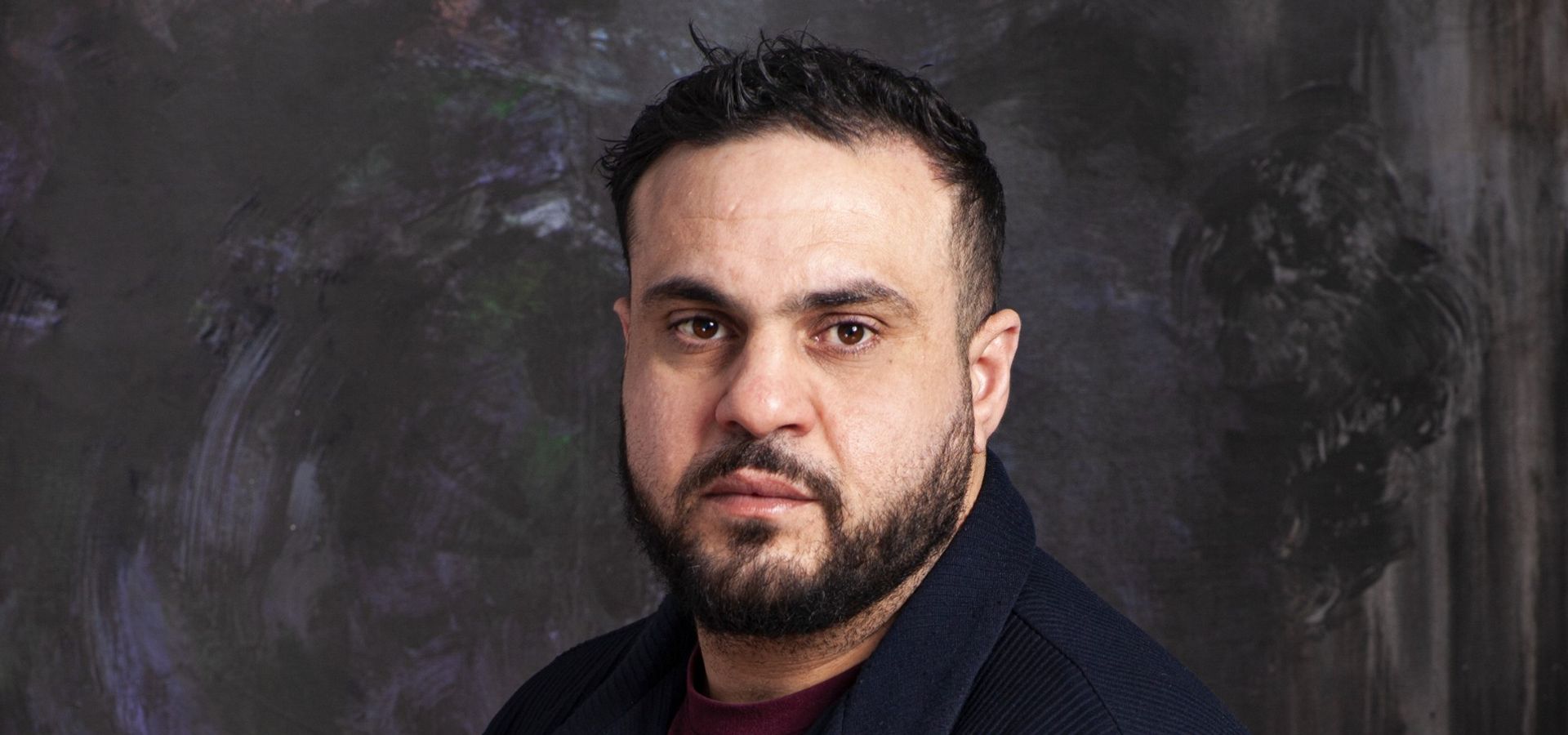
Interview met Alaa Shehada over The horse of Jenin
door Loek Wijers
Alaa Shehada maakte een solovoorstelling over opgroeien op een plek waar vrijheid niet vanzelfsprekend is. Vanuit het perspectief van zijn kindertijd laat hij het publiek kennismaken met de mensen in Jenin, Palestina. Zijn beste vriend Ahmed, zijn leraar Engels, zijn eerste liefde, de dokter die een lokale held is. Een voorstelling over hoop en vreugde te midden van onderdrukking.
"Bij checkpoints moeten we drie of vier uur wachten. Mensen brengen hun shisha mee en ze spelen kaartspelletjes. Jongens en meisjes worden verliefd terwijl ze naast hun auto bij een checkpoint staan te wachten."
For English see below
Waarom heb je ervoor gekozen om je verhaal te vertellen vanuit het perspectief van een kind en jongvolwassene?
‘Het biedt me een platform om speels en komisch te zijn, ondanks de zware setting van de show. Die speelsheid weerspiegelt de realiteit van de mensen in Jenin – hoe ze, zelfs in moeilijke tijden, manieren vinden om te leven, te lachen, grappen te maken, relaties op te bouwen, te trouwen en huizen te bouwen. Ondanks de worstelingen zoeken we naar vreugde, verbinding en humor om te overleven.
Iemands jeugd begrijpen helpt ook om te verklaren waarom iemand is geworden wie hij nu is. Als je iemands geschiedenis kent, begrijp je ook zijn heden. We hebben allemaal een kindertijd gehad, en juist dat maakt het voor het publiek makkelijker om zich in te leven in het leven van mensen die onder onderdrukking leven.’
De voorstelling is voornamelijk een komedie, maar bevat ook zeer tragische momenten. Hoe heb je dat benaderd bij het maken van het stuk?
‘Het balanceren van komedie en tragedie is een artistiek middel, een manier om harmonie te brengen in een gevoelig verhaal. Het gaat erom de juiste mix te vinden zonder grenzen te overschrijden. Grappen maken zonder mensen te kwetsen is moeilijk. We noemen het vaak “dansen rond rode lijnen”, voorzichtig navigeren langs gevoelige onderwerpen. Het vereist zorgvuldigheid en ook veel bewustzijn van de situatie in Palestina het publiek.’
Je speelt de show nu al een tijdje en zult hem hier in Bellevue twaalf dagen achter elkaar spelen. Hoe is het mentaal om dit stuk elke dag opnieuw te spelen?
‘Het is moeilijk. Ik val in slaap en word wakker met slecht nieuws. Deze week zijn ze in afwachting of Israëlische troepen zestig huizen in de stad zullen opblazen. Als ik naar het theater loop om op te treden, bel ik familie en vrienden die met deze harde realiteit te maken hebben. Hier leven met het voorrecht van vrijheid, terwijl anderen thuis nauwelijks kunnen reizen of hun buren kunnen bezoeken. Het is moeilijk om je daar niet schuldig over te voelen. Tegelijkertijd probeer ik die emoties opzij te schuiven om creatief te zijn en te presteren. Het is niet gemakkelijk om het gewicht van alles te los te laten en toch het stuk vol overgave te spelen, maar ik doe mijn best om professioneel te blijven.’
In de voorstelling heb je het over de kracht van verbeelding. Waarom denk je dat dat zo belangrijk is in situaties van onderdrukking?
‘Het verzacht de harde realiteit en voegt nieuwe kleuren, vormen en beelden toe aan je verhaal. Het helpt je om de dingen anders te zien, waardoor je er makkelijker mee om kunt gaan en vooruit kunt blijven gaan. Het gaat niet per se om het ontsnappen aan de realiteit, maar om het vinden van manieren om erin te leven.
In de show wordt het publiek gevraagd om hun verbeelding te gebruiken. Er is geen decor – alleen ikzelf en de maskers waarmee ik verschillende personages vertolk. Het publiek moet de details van de scènes invullen. Daardoor wordt het een collectief verhaal.’
Het paard van Jenin is meer dan alleen een kunstinstallatie die door het Israëlische leger is weggenomen. Kun je uitleggen wat het voor jou symboliseert?
‘Het symboliseert wat het betekent om elke dag om vrijheid te vragen. Voor Palestijnen staat het voor het constante verlangen naar vrijheid - de vrijheid om te bewegen, te reizen, een leven op te bouwen en te leven zonder gecontroleerd te worden. Het verhaal weerspiegelt deze strijd. Neem bijvoorbeeld mijn leraar, over wie ik in de show vertel. Hij krijgt geen salaris meer, omdat de Israëlische regering die betaling heeft stopgezet. Daarom werkt hij ’s avonds als taxichauffeur om rond te komen. Dat streven naar vrijheid is de kern van de Palestijnse strijd.’
Waar gaat de show voor jou in de kern over?
‘Dit is een eerbetoon aan degenen die elke dag worstelen om te overleven - die elke ochtend opstaan om een beetje geld te verdienen om hun gezin te voeden. Het is een eerbetoon aan zij die lijden en toch doorgaan met het delen van hun verhalen aan de wereld. Het is een eerbetoon aan Ahmeds droom, aan de dromen van de mensen in Jenin. In de kern gaat het over waardering en het doorzettingsvermogen dat we nodig hebben om simpelweg te leven.’
ENG
Alaa Shehada created a solo performance about what it means to grow up in a place where freedom isn’t a given. Through his childhood eyes he introduces the audience to the people of Jenin, Palestine. His best friend Ahmed, his English teacher, his first love, the doctor who’s a local hero. A show about hope and celebration under oppression. “At checkpoints, we wait for three or four hours. People bring their shisha and they play cards. Boys and girls fall in love while waiting next to their car at a checkpoint.”
Why did you choose to tell your story from the perspective of a child and young adolescent?
‘It gives me a platform to be playful and comedic, while the setting of the show is heavy. The playfulness reflects the reality of people in Jenin—they still find ways to live, laugh, make jokes, connect, marry, and build homes even in hardship. Despite the struggles, we search for celebration, communication, and laughter to survive.
Also, understanding someone’s childhood helps explain why they are who they are now. If you understand their history, you understand the present. We all know what it is to be a child, so it gives the audience a tool to better understand what individuals who live under oppression go through.’
The show is primarily a comedy show, but it also has very tragic moments. How did you approach that when creating the piece?
‘Balancing comedy and tragedy is an artistic tool, a way to create balance in a sensitive story. It's about finding the right mix without crossing lines. Making jokes without hurting people is difficult. We often call it "dancing around red lines," — carefully navigating sensitive topics. It requires care and also a lot of awareness from the audience.’
You’ve been playing the show for quite a while now, and will play it here at Bellevue twelve days in a row. How is it emotionally to get up every day and perform?
‘It’s hard. I fall asleep and wake up to bad news. This week, they’re in anticipation of whether Israeli troops will blow up sixty houses in Jenin. When I walk to the theatre to perform, I call family and friends who are dealing with this very harsh reality. Living here with the privilege of freedom, while others back home can’t even move from place to place or visit their neighbours, makes it hard not to feel guilty. At the same time, I try to push those feelings aside to be creative and perform. It’s hard to avoid the weight of everything and still deliver the piece, but I do my best to be professional.’
In the show you talk about the power of imagination. Why do you think that's so important in situations of oppression?
‘It softens the harsh reality and brings new colours, forms, and pictures to your story. It helps you see things differently, making it easier to cope and keep moving forward. It’s not necessarily about escaping reality, but about finding ways to live within it.
In the show, the audience is prompted to use their imagination. There is no decor, it’s just me and the masks I use to play different characters. The audience has to fill in the details of the scenes. As a result, it becomes a collective story.’
The horse of Jenin is more than just an art installation that was taken by the Israeli military. Can you explain what it symbolises for you?
‘It symbolises what it means to ask for freedom every day. For Palestinians, it represents the constant desire for freedom—freedom to move, travel, build a life, and live without being controlled. The story reflects this struggle. Take my teacher, for example—whom I talk about in the show. He doesn’t receive his salary because the Israeli government has blocked the payments. To make ends meet, he works as a taxi driver in the evenings. He keeps finding ways to survive and move toward that freedom. That pursuit is the core of the Palestinian fight.’
At its core, what is the show about for you?
‘This is a celebration of those who struggle every day—who wake up each morning to earn a little money to feed their families. It honours those who suffer yet continue to share their stories to the world. It’s a tribute to Ahmed’s dream, to the dreams of the people of Jenin. It’s a celebration of our goals, our fight, our resistance—the daily struggle for freedom. At its core, it is about appreciation and the perseverance we need to simply live.’



